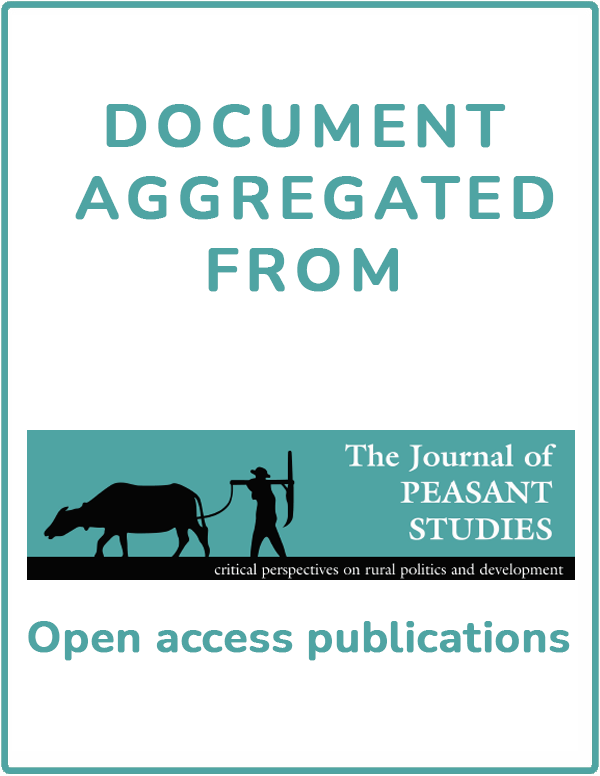Shifting frontiers: the making of Matopiba in Brazil and global redirected land use and control change
Resource information
Date of publication
November 2020
Resource Language
ISBN / Resource ID
10.1080/03066150.2020.1824183
Pages
263-287
Copyright details
Creative Commons Zero (Public Domain)
There are not fixed conditions that make potential agricultural frontiers attractive to capital: different spaces and strategies are chosen in relation to previous failed experiments, including those strongly contested by social movements. Socio-environmental contestations can also inadvertently result in negative spillovers, or a kind of indirect land use change. I propose a concept of:redirected:land use and control change for cases with strategic adaptations by promoters of frontiers. I suggest three dimensions of adaptations – across spaces, political-administrative regimes and in forms of land appropriation – to apprehend the multi-scale politics of land grabbing, through the case of Matopiba in Brazil.


